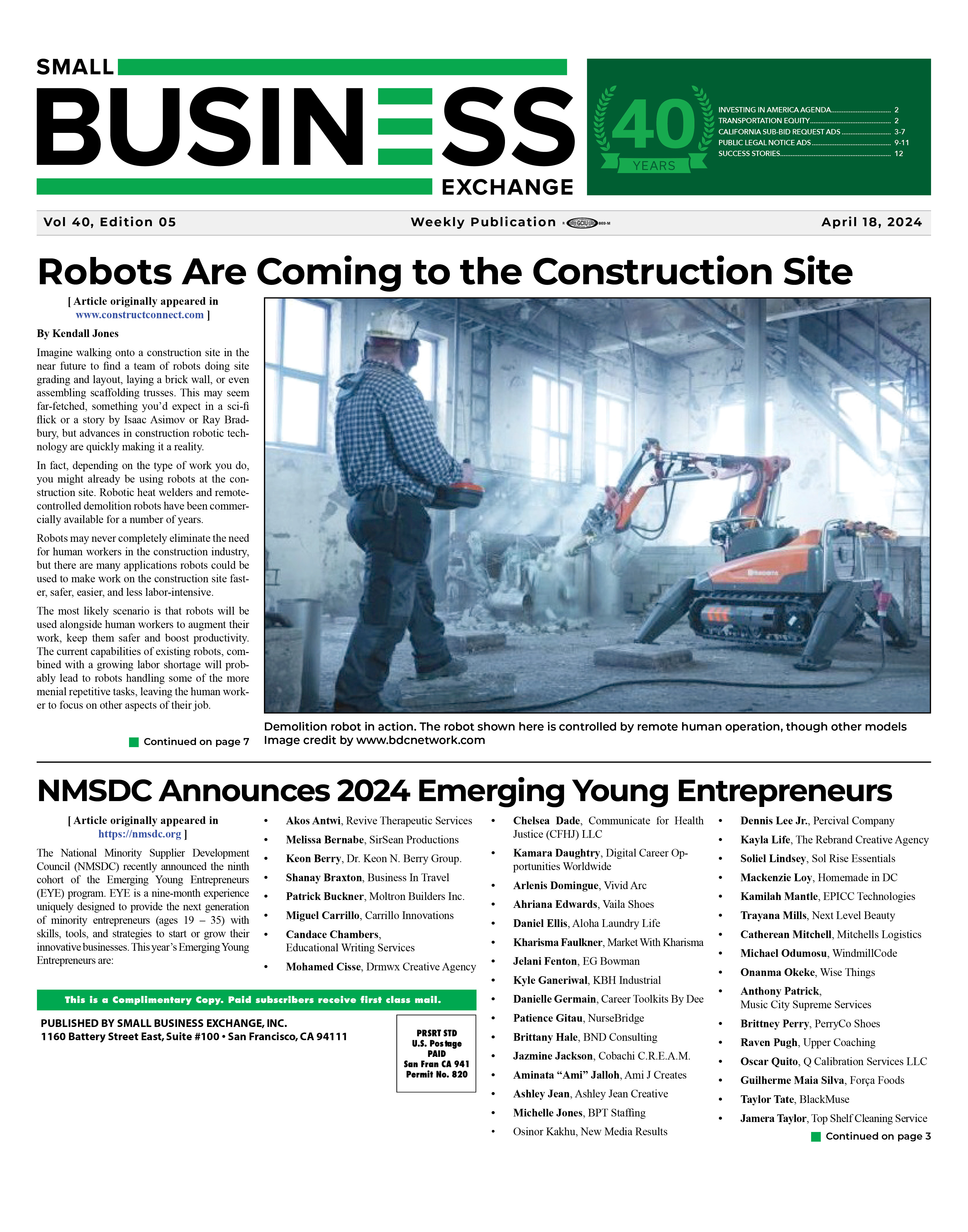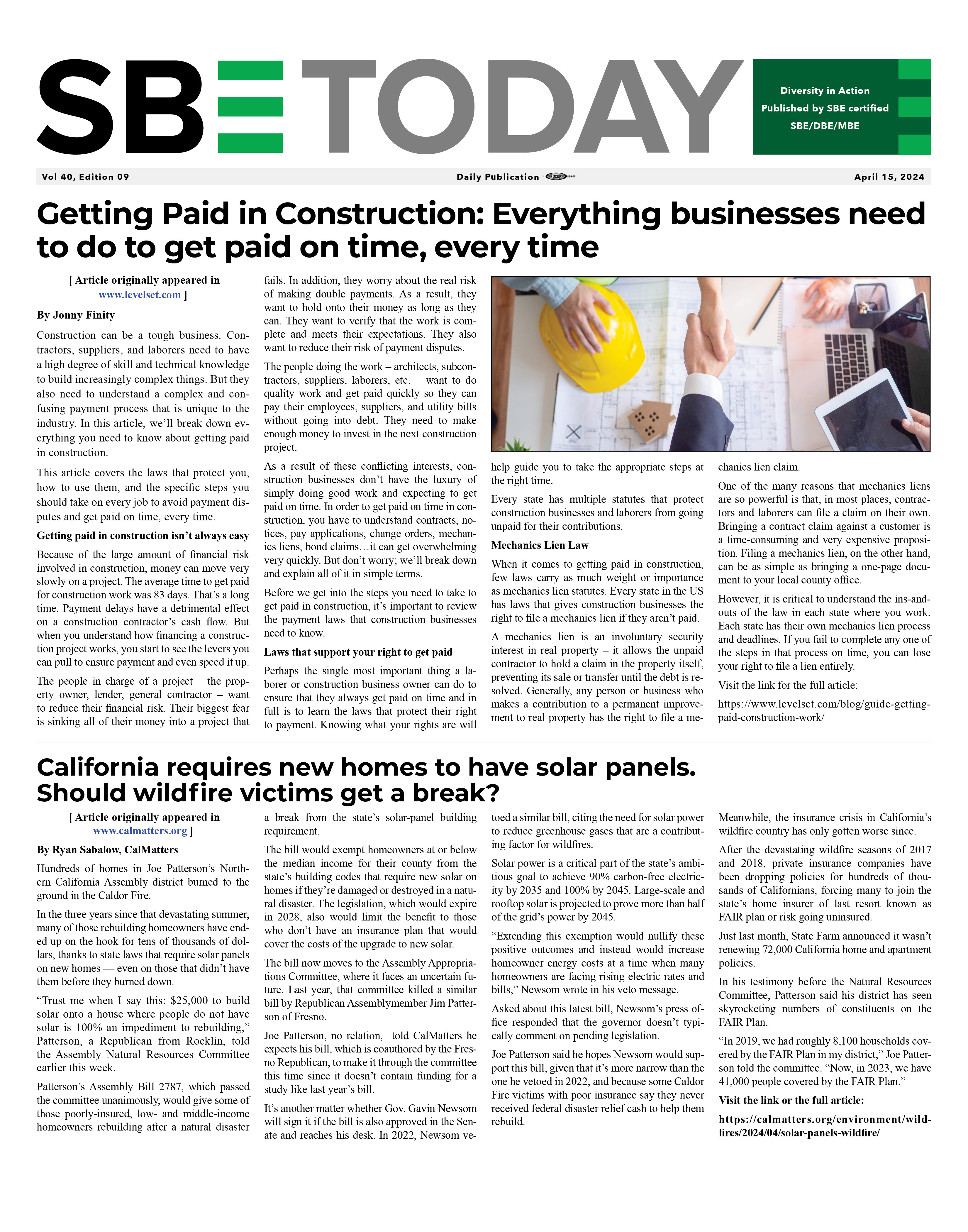5 Health and Safety Tips for Essential Construction Workers
05/24/2020
[ Article was originally posted on www.constructconnect.com ] On the other side of the coin, however, cities and states are taking advantage of less traffic on the highways to complete construction projects ahead of schedule. For those companies considered essential, what can managers and business owners do to ensure their crews are safe during this unprecedented time? Prescreen Employees Before ShiftsMany essential businesses have started prescreening their employees before shifts by checking their temperature. This step can be effective because one of the common symptoms of COVID-19 is a high fever. Experts should check employees' temperatures before they enter the facility or job site. Anyone who is running a fever should go home. To limit exposure, it's also a good idea to screen anyone who visits the jobsite, from contractors to visitors, and not permit anyone who is ill to come into contact with workers. Keeping these visits to a minimum can also reduce the chance of exposure. Wear Face Masks Whenever PossibleConstruction workers spend their time in close proximity to one another. A new study found that essential construction workers are more likely to contract COVID-19 because of their working conditions.Face masks, even cloth ones, can reduce the spread of the coronavirus, preventing sick individuals or those who are infected but asymptomatic from spreading viral particles. While construction sites typically don't require masks, a new OSHA alert recommends that business owners and supervisors allow their employees to wear masks that cover their mouths and noses while at work. This method isn't a replacement for social distancing, which should also take precedence on the job site. Employees should remain six feet apart whenever possible, even if it hurts productivity. Provide Time to Clean and DisinfectFor jobsites that are still active during the pandemic, supervisors should provide extra time to clean and disinfect shared spaces and equipment. Teams can use soap and water, or better yet, non-bleach disinfecting wipes or 70% isopropyl alcohol to clean. Managers should be mindful not to risk equipment damage by using bleach or solvent-based cleaning solutions. It’s unlikely that cleaning will be able to erase every trace of the virus from a truck, switch or seat. With proper personal protective equipment (PPE) and social distancing guidelines in place, however, this simple step can make a difference in how easily germs are spread. Train your workers to disinfect shared tools and equipment before switching to another task. Offer Paid Time Off for Sick EmployeesMany construction employees are coming to work regardless of the risk to their health—or the risk to others if they're sick. For low-income individuals, there often isn't any other choice. Many jobs didn't offer any paid sick time before the pandemic started, and if they did, it wasn't enough days to support employees for the minimum two weeks they would need to stay home to prevent them from spreading the disease to others. If they haven't already, companies should set up policies to offer paid time off for employees exposed to the coronavirus, are already ill or are sent home during the prescreening before their shift. Research suggests there is added cost to this decision, but the impact is minimal compared to that of shutting down a site because of widespread infection. It’s riskier for the entire team if workers feel obligated to come to work sick. Make Employee Health and Safety a PriorityThere are plenty of other things construction companies should consider doing to protect their employees during this viral pandemic. Still, one should always be at the forefront of their minds—employee health and safety. Regardless of the changes that essential companies make, their priority should be keeping their teams safe and healthy. The pandemic has shaken the economy and affected many livelihoods, especially small and mid-sized businesses. There’s plenty to be concerned over regarding the bottom line, project deadlines, or new contracts. However, if your work is still considered essential, employee safety should be first and foremost in every construction company owner's mind. Jobsite managers and supervisors should be doing everything they can to keep their teams safe while preventing the spread of the coronavirus. After all, nobody can be productive if they or their loved ones are suffering from a critical health condition—and hiring critical construction workers will be challenging for many firms. Patience Is Key to Worker Health and SafetyPatience is the most important thing to remember during these trying times. While some states are starting to loosen their restrictions on businesses and what can be considered essential, the pandemic isn't over yet. Many industries are worried a resurgence in cases will likely result in tighter restrictions, at least until improved testing or treatment is available to the general population.
The key for essential construction work is patience. Take the time to clean workstations, space out workers, and monitor their symptoms. Protect employees and keep them healthy and safe. Everything else will fall into place. Back To News |
|
|
|
ABOUT SBE Inc.
Small Business Exchange Inc., is the ultimate business information hub for small businesses, disadvantaged, Asian, Black, Hispanic Women and Disabled Western-owned Business. Founded in 1984 by Gerald W. Johnson and Valerie, Voorhies, SBE, has been working for over two decades to provide businesses with the most powerful tools available and accurate, up-to-date information about contract opportunities in the public and private marketplaces. CONTACT
Small Business Exchange, Inc.
Phone: 415-778-6250
© 2024 Small Business Exchange, Inc.
|
||
|
|
5 Health and Safety Tips for Essential Construction Workers
05/24/2020
Back To News |
|




